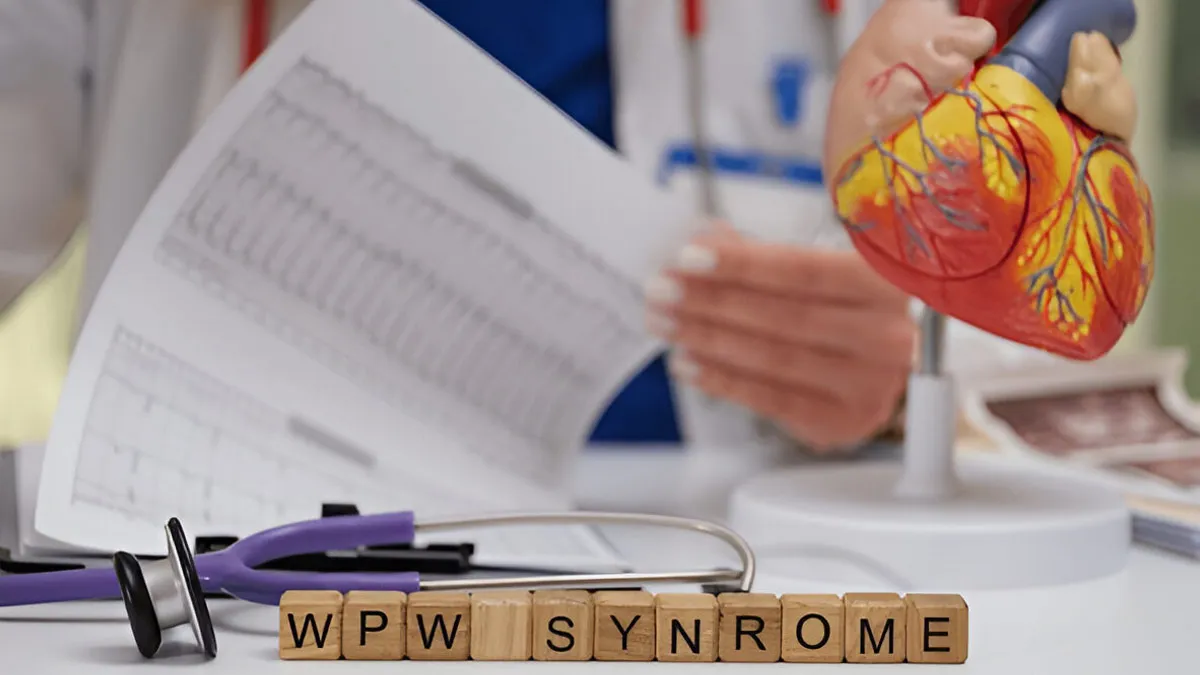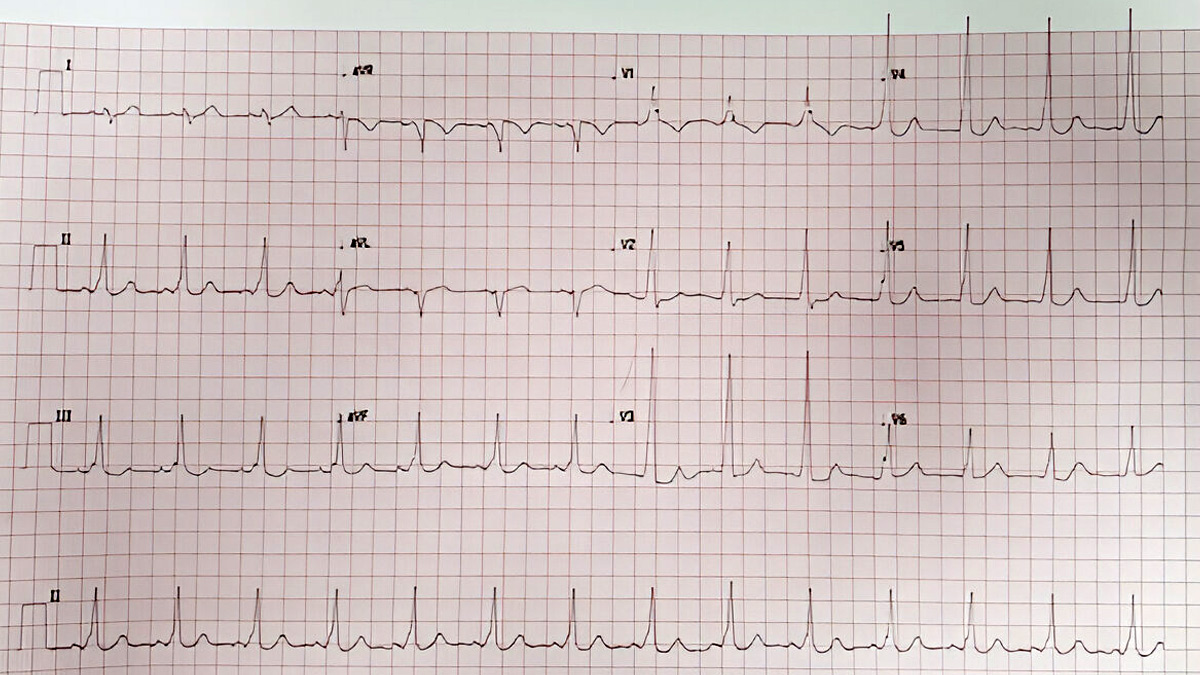
Matters of the heart are truly sensitive, especially when its electrical system is disrupted. This is also called an arrhythmia, which occurs when there is a problem with the rate or rhythm of your heartbeat, i.e., if your heart beats too fast, too slow, or irregularly.
Table of Content:-
Wolff-Parkinson-White (WPW) syndrome is one such type of arrhythmia where an extra electrical pathway exists in the heart, causing it to beat irregularly or too quickly. For those who aren't aware of this condition, here's everything you need to know.
Also Read: The Cardiac Impact Of Autoimmune Diseases: What Lupus, RA, And Psoriasis Can Do To The Heart
What Is Wolff-Parkinson-White Syndrome?

"Wolff-Parkinson-White (WPW) syndrome is caused by an extra electrical pathway in the heart that allows signals to bypass the normal route and travel rapidly between the upper and lower chambers," explains Dr Ravi Prakash, Senior Consultant Cardiologist, PSRI Hospital, Delhi.
He adds, "This accessory pathway can cause episodes of rapid heartbeat (tachycardia). WPW is usually congenital, meaning a person is born with it, although it may not cause symptoms until later in life."
While anyone can develop WPW, it is most commonly diagnosed in young people and infants. In some rare cases, WPW can be associated with a structural heart defect such as Ebstein’s anomaly, a condition affecting the tricuspid valve.
What Causes Wolff-Parkinson-White Syndrome?
According to StatPearls Publishing, WPW syndrome is found in about 1 to 3 out of every 1,000 people. Interestingly, many people with a WPW pattern on their ECG have no symptoms at all; around 65% of adolescents and 40% of adults over 30 with this pattern remain asymptomatic. However, there's still a small annual risk (1–2%) that they may develop arrhythmias. The condition tends to show up more often in people aged 20 to 24 and sometimes runs in families, especially with certain gene mutations like PRKAG2.
Symptoms Of Wolff-Parkinson-White Syndrome
The most common symptom of WPW is a sudden and rapid heartbeat, says Dr Prakash. Other symptoms may include:
- Dizziness
- Chest pain
- Palpitations
- Shortness of breath
- Fatigue
- Fainting
The symptoms often begin suddenly and may last for seconds to hours. Some people with WPW may not experience any symptoms, and the condition may be discovered only during an ECG performed for another reason.
The severity and frequency of symptoms can vary widely, with some individuals experiencing rare episodes and others having more frequent disturbances.
How Is Wolff-Parkinson-White Syndrome Different From Other Arrhythmias?
WPW syndrome is different from other arrhythmias because of the presence of the extra electrical connection between the atria and ventricles.
This accessory pathway allows electrical impulses to travel inappropriately fast, often resulting in a type of arrhythmia known as Atrioventricular Reentrant Tachycardia (AVRT). This sets it apart from other arrhythmias like atrial fibrillation (AFib) or supraventricular tachycardia that are caused by dysfunction within the normal conduction pathways.
The presence of this extra pathway can increase the risk of more dangerous heart rhythms under certain conditions, especially if left untreated.
Also Read: Non-Dairy Alternatives for Better Cardiovascular Health
Treatment Options

According to Dr Prakash, treatment for WPW depends on the severity of the symptoms. Some people may not need treatment and simply be monitored regularly.
For those with recurrent or severe symptoms, medications like beta-blockers or anti-arrhythmic drugs may help control the heart rhythm. However, the most effective and long-term solution is catheter ablationIn this minimally invasive procedure, a thin wire is guided through a blood vessel and into the heart, and the abnormal pathway is destroyed using radiofrequency energy.y.
This procedure has a high success rate and is often curative. Surgery is rarely needed today unless catheter ablation fails or is not an option. With appropriate treatment, most people with WPW live healthy and active lives.
Conclusion
Having an extra electrical pathway in the heart, like in WPW syndrome, can sound concerning, but it doesn’t have to be. For many, it may never cause a problem, while for others, it might show up as sudden palpitations, dizziness, or fatigue. With timely diagnosis and modern treatments like catheter ablation, most people can manage WPW effectively and get back to living life fully. If your heart ever feels off, or you’ve been told you have a fast or irregular heartbeat, it’s worth having it checked. Consider speaking to a doctor to ensure everything is in order.
Also watch this video
How we keep this article up to date:
We work with experts and keep a close eye on the latest in health and wellness. Whenever there is a new research or helpful information, we update our articles with accurate and useful advice.
Current Version